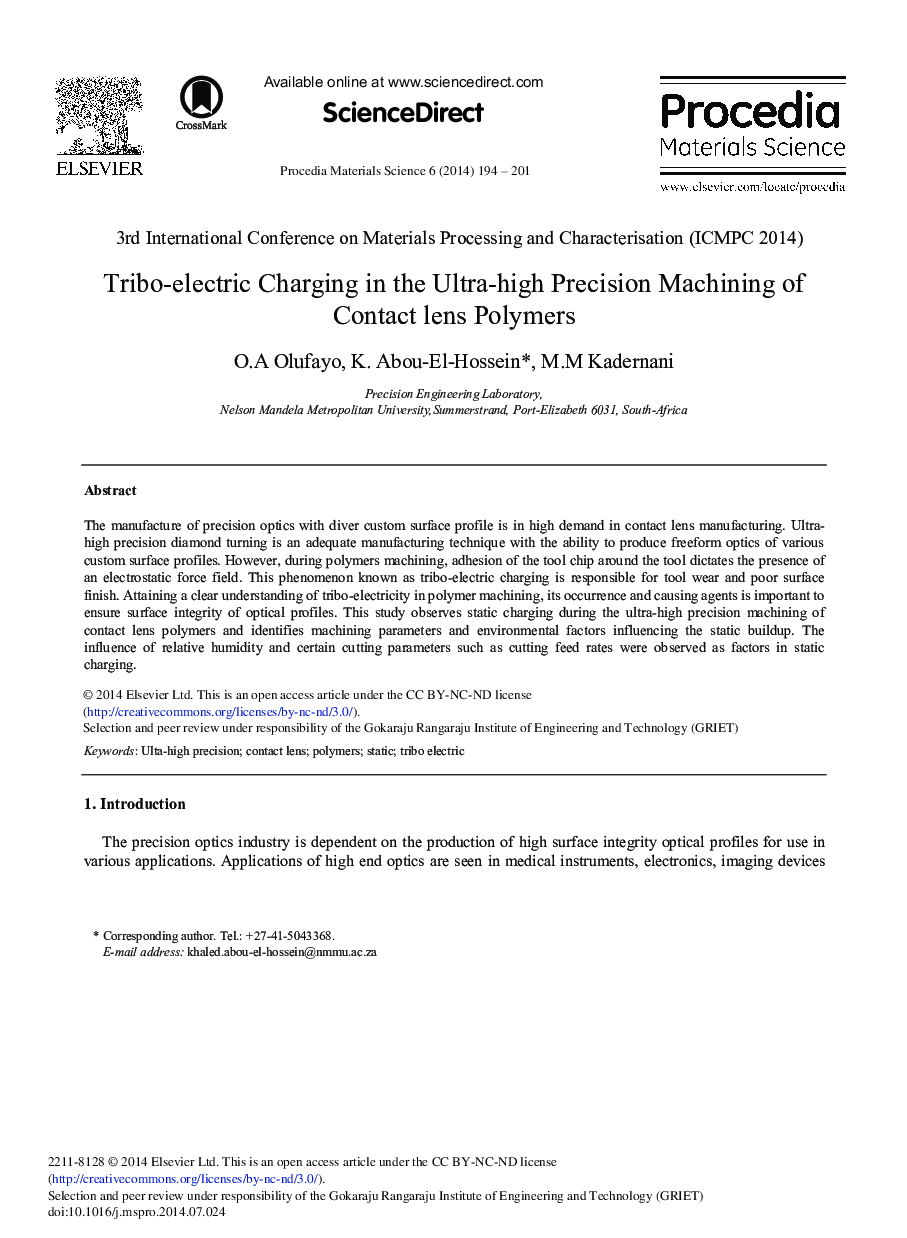| Article ID | Journal | Published Year | Pages | File Type |
|---|---|---|---|---|
| 1634410 | Procedia Materials Science | 2014 | 8 Pages |
The manufacture of precision optics with diver custom surface profile is in high demand in contact lens manufacturing. Ultra- high precision diamond turning is an adequate manufacturing technique with the ability to produce freeform optics of various custom surface profiles. However, during polymers machining, adhesion of the tool chip around the tool dictates the presence of an electrostatic force field. This phenomenon known as tribo-electric charging is responsible for tool wear and poor surface finish. Attaining a clear understanding of tribo-electricity in polymer machining, its occurrence and causing agents is important to ensure surface integrity of optical profiles. This study observes static charging during the ultra-high precision machining of contact lens polymers and identifies machining parameters and environmental factors influencing the static buildup. The influence of relative humidity and certain cutting parameters such as cutting feed rates were observed as factors in static charging.
